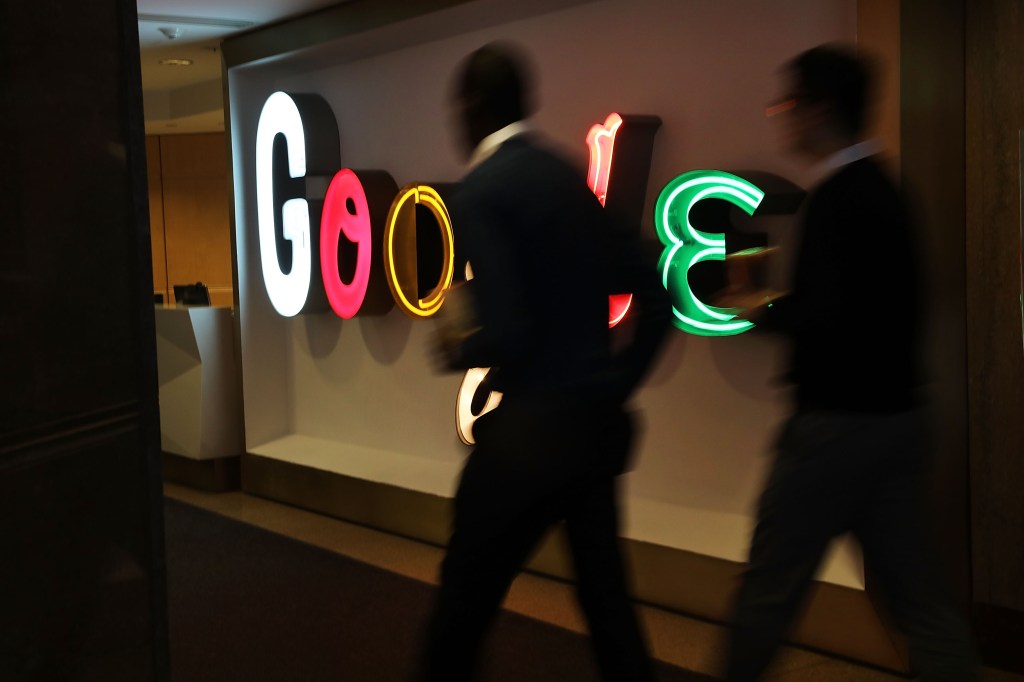After several years of escalating tension between workers and management at Google, Google workers have publicly launched a unionization effort—a critical step in an industry where labor has become increasingly organized. Crucially, the union will be open to all of the more than 120,000 employees who work for Google and its parent company, Alphabet.
On Monday, workers announced the establishment of the Alphabet Workers Union with the support of one of the country’s largest labor unions, the Communications Workers of America (CWA).
Videos by VICE
“This is historic—the first union at a major tech company by and for all tech workers,” Dylan Baker, a Google software engineer, said in a statement to the press. “We will elect representatives, we will make decisions democratically, we will pay dues, and we will hire skilled organizers to ensure all workers at Google know they can work with us if they actually want to see their company reflect their values.”
To be clear, workers have not yet asked Google for formal recognition of their union or indicated that they will hold a union election—meaning Google technically does not have to recognize the union. In order for Google workers to formally unionize, Google will need to voluntarily recognize a union or more than 50 percent of eligible union members will need to vote to unionize.
“We’ve always worked hard to create a supportive and rewarding workplace for our workforce,” said Kara Silverstein, Google’s director of people said in an email responding to news of the union. “Of course our employees have protected labor rights that we support. But as we’ve always done, we’ll continue engaging directly with all our employees.”
The new union for Google workers—which is affiliated with CWA Local 1440—will be open to all 120,000 workers at Alphabet companies, including temps, vendors, and contractors, known as ‘TVCs’ who make up half of Google’s workforce but are not afforded the same benefits and rights as Google employees. Members who sign union cards will pay one percent of their total compensation as dues that will go toward day-to-day union operations and paying organizing staff to expand the union.
Workers who have joined the union say they will launch various campaigns going forward which could include a campaign to hold a union election. Under the National Labor Relations Act of 1935, Google cannot interfere or retaliate against workers who sign union cards.
This unionization strategy is somewhat different from those that often happen at smaller companies, where union drives are typically made public once a union is certain it has enough support from workers to qualify for an election or gain voluntary recognition from an employer.
In this case, workers at Google have seemingly opted to go public early on in an effort to organize a massive, disjointed, and complicated company that has already made it clear through its actions that it would not support employee efforts to unionize. In the meantime, Google workers can use the new union not only to build support, but also to continue organizing around ethical issues without formal union recognition.
Google workers—citing the company’s responses to sexual harassment, drone contracts with the Department of Defense, and the recent firing of Timnit Gebru, a leading Black artificial intelligence researcher—said the union would provide a structure for workers to ensure their values are respected by the company.
“The only tactic that has ensured workers are respected and heard is collective action,” the workers wrote in a press release. “Project Maven was cancelled when thousands of Googlers pledged they would not work on unethical tech. Forced arbitration was ended when Googlers walked out across the globe.”
The new union is part of CWA’s CODE (Coalition to Organize Digital Employees) campaign, which launched in early 2020 to unionize the tech and games industry, both of which are undergoing an unprecedented wave of white-collar worker organizing and unionization efforts, largely focused on ethical issues. In 2020, Kickstarter and Glitch employees became the first white-collar workers at major tech companies to vote to form unions. In 2019, Google contractors in Pittsburgh and cafeteria workers in the Silicon Valley successfully voted to unionize.
Google did not immediately respond to a request for comment. In 2019, the company hired a notorious union avoidance firm called IRI Consultants to advise it on labor unrest and organizing at the company. In late 2020, the National Labor Review Board found sufficient evidence that Google had illegally fired and surveilled workers involved in organizing at the company in 2019.
Already 227 workers from Google’s headquarters in Mountain View, California and offices in Seattle, Chicago, New York City, San Francisco, Portland, Los Angeles, Cambridge, Massachusetts; Boulder, Colorado; San Bruno, California, have signed union cards, according to a union organizer.
The organizing work for the union began in May 2019, according to workers, who said that worker organizers started holding so-called “1:1” meetings with their colleagues to build and gauge support at the time.
This article has been updated with a comment from Google.
More
From VICE
-

An Android character at Google headquarters. (Photo by Justin Sullivan/Getty Images) -

Photo by Steffi Lopez -

Image Credit: Natalli Amato -

